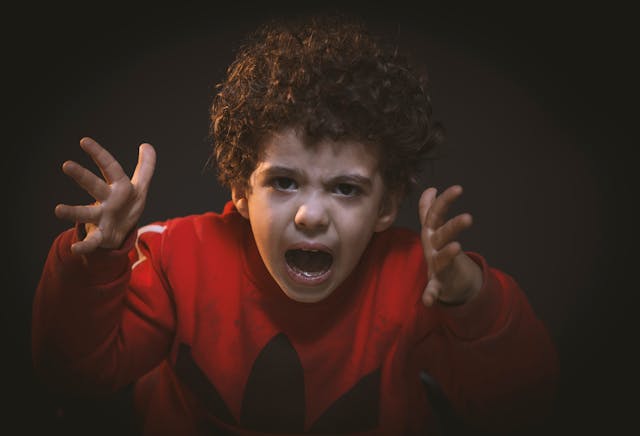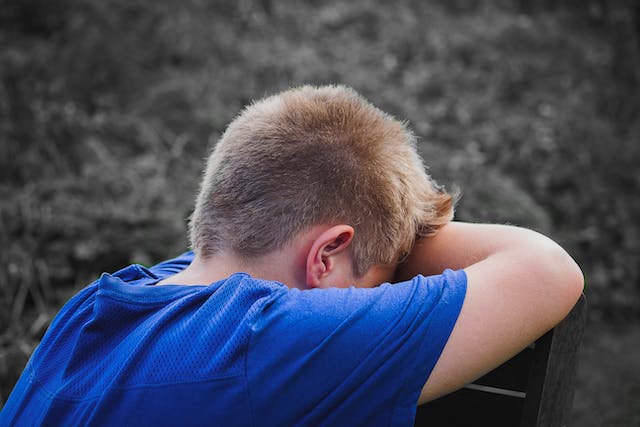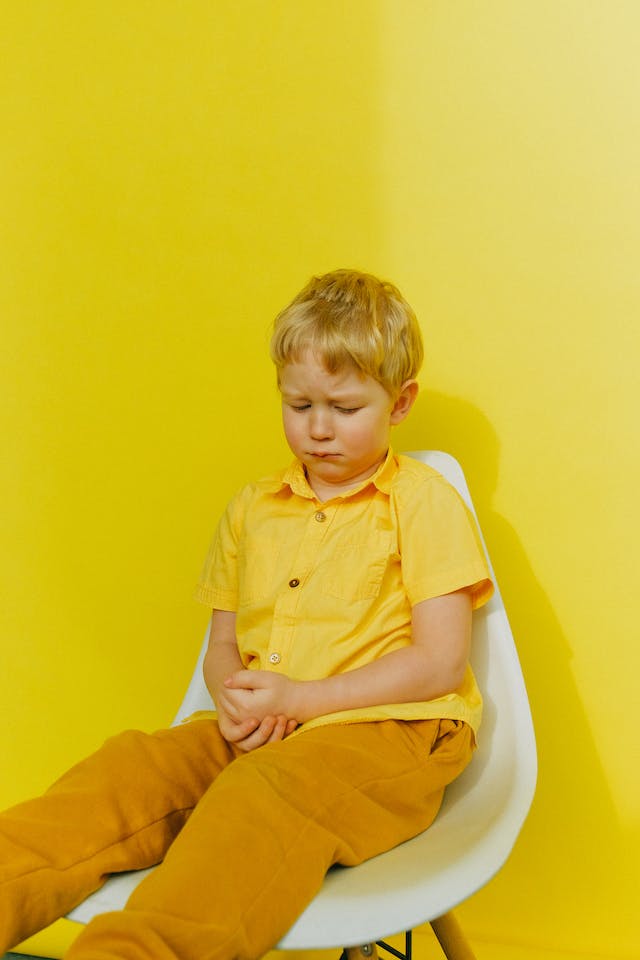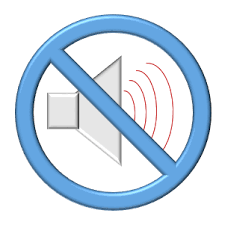 Stephen Geller Katz LCSW-R
Stephen Geller Katz LCSW-R
Misophonia Cognitive Retraining Therapy
 Stephen Geller Katz LCSW-R
Stephen Geller Katz LCSW-RMisophonia Cognitive Retraining Therapy
Misophonia Cognitive Retraining Therapy, as featured on the MTV True Life episode: “I Have Misophonia” premiering Friday, December 16th, 7:00 PM EST. See Clip >
|
|
|
| Moderate to severe anxiety triggered by chewing sounds, including: | ||
|
|
|
You may also be affected by visual stimuli, such as repetitive foot or body movements, fidgeting or movement you observe out of the corners of their eyes. Intense anxiety, rage and avoidant behavior may develop as a result of misophonia.
 * Do you feel your family and friends don’t understand how much you suffer?
* Do you feel your family and friends don’t understand how much you suffer?
* Do you often feel you can just suffer through a social event where there is eating present only to find that you must “escape” before you have a panic attack?
* Do you find that some people are at first understanding and make some efforts not to make the triggering sounds in front of you, but soon forget and constantly have to be reminded, causing you to feel angry, anxious and depressed?
* Are you avoiding social activities that you enjoy because of the misophonia?
* Are you fearful of losing your job and/or is the misophonia effecting your job performance?
You may be a candidate for Misophonia Cognitive Retraining Therapy, or MCRT.
Stephen Geller Katz, LCSW-R, with over 20 years of clinical experience, a New York University graduate, developed Misophonia Cognitive Retraining Therapy and founded Misophonia Cognitive Center™ in response to the growing number of people with Misophonia coming to his private practice from audiologists and ENTs. He discovered that by helping people to retrain and reinterpret the thoughts around their Misophonia, anxiety and depression symptoms began to improve. But even more important so did the Misophonic trigger response.
Implementing effective coping strategies can help children manage misophonia symptoms and improve their quality of life. Misophonia, characterized by intense emotional reactions to specific sounds, can be particularly challenging for children. These reactions can interfere with daily activities, school performance, and social interactions.

Misophonia in children manifests through strong negative reactions to specific sounds such as chewing, breathing, or repetitive noises like pen clicking. These reactions can range from mild irritation to severe anger or distress, significantly affecting the child’s behavior and emotional well-being.
A supportive environment is crucial for helping children with misophonia manage their symptoms. Parents, teachers, and peers should be educated about misophonia to foster understanding and patience.
Behavioral strategies can help children develop resilience and reduce the impact of trigger sounds.
Several technological aids and tools can help children manage misophonia symptoms effectively.
Professional therapeutic interventions can provide tailored support and strategies to help children cope with misophonia.
Coping with misophonia can be challenging for children, but with the right strategies and support, they can learn to manage their symptoms effectively. Creating a supportive environment, implementing behavioral strategies, utilizing technology, and seeking professional therapy are all crucial components of a comprehensive approach to managing misophonia in children.
Dr. Stephen Katz at the Misophonia Cognitive Center™ offers specialized online treatment services to help children and their families navigate the challenges of misophonia. Call today to schedule a consultation or convenient online session.
MISOPHONIA COGNITIVE CENTER™
Stephen Geller Katz LCSW-R
19 West 34th Street
Penthouse Floor
New York, NY 10001
646-585-2251
Convenient online sessions
Dr. Katz is multi-lingual
For more information about Dr. Katz and his treatment services, visit https://www.misophoniacognitivecenter.com/.
Misophonia, a condition characterized by extreme emotional reactions to specific sounds, can affect people of all ages, including children. Recognizing the signs of misophonia in children and understanding how to support them is crucial for their well-being. In this blog, we’ll explore misophonia in children, signs to look for, and strategies for parents.

Misophonia can manifest differently in children compared to adults. Children may not always be able to express their feelings and emotions effectively, making it challenging to recognize misophonia. Here are some common signs that may indicate misophonia in children:
Children with misophonia may experience sudden and intense emotional outbursts in response to trigger sounds. These outbursts can include anger, frustration, or even tantrums.
Children may develop avoidance behaviors to escape trigger sounds. For example, they may leave the room during mealtime or isolate themselves during noisy activities.
 Misophonia can also manifest as physical symptoms in children, such as increased heart rate, muscle tension, or digestive discomfort when exposed to trigger sounds.
Misophonia can also manifest as physical symptoms in children, such as increased heart rate, muscle tension, or digestive discomfort when exposed to trigger sounds.
Misophonia can impact a child’s academic performance and social interactions. They may have difficulty concentrating in noisy environments or avoiding situations where trigger sounds are present.
As a parent, there are several strategies you can employ to support your child with misophonia:
Encourage open and non-judgmental communication with your child. Create a safe space for them to express their feelings and frustrations related to misophonia.
Work together with your child to identify their specific trigger sounds. Understanding the triggers can help you take proactive steps to minimize exposure.
Teach your child age-appropriate coping strategies to manage their emotional responses to trigger sounds. Deep breathing exercises, mindfulness, and relaxation techniques can be helpful.
Designate a quiet and trigger-free space in your home where your child can go to relax and de-escalate when needed.
Consider consulting a misophonia specialist or therapist who can provide guidance and treatment options tailored to your child’s needs.
Stephen Geller Katz, a licensed clinical social worker and founder of the Misophonia Cognitive Center™, specializes in the treatment of misophonia in children and adults. Dr. Katz offers online sessions, making treatment accessible and convenient for families. He also speaks five languages, ensuring effective communication.
If you suspect that your child may be experiencing misophonia, don’t hesitate to reach out to Stephen Geller Katz at the Misophonia Cognitive Center™. Dr. Katz can provide expert guidance and support to help your child manage misophonia and improve their quality of life.
MISOPHONIA COGNITIVE CENTER™
Stephen Geller Katz LCSW-R
19 West 34th Street
Penthouse Floor
New York, NY 10001
646-585-2251
Misophonia is difficult enough to deal with when it affects you personally, but things can quickly get much more complicated when you’re living with a child suffering from misophonia on a daily basis. Children are less cooperative and don’t consider their actions that much with regards to others, and if you don’t control the situation from early enough, you might eventually find yourself dealing with a child that’s beyond any realistic control.

The first thing to do is to find out what exactly triggers your kid’s misophonia and take steps to minimize the presence of those irritants in your daily life. This should be easier to manage when the kid is still young and lives with you at home, although you’ll eventually also have to deal with the problem that they would want to go out among other people, where you won’t be in control of everything about the environment.
This makes it important to ensure that the child itself is aware of the condition they have as early as possible. Talking to them once will probably get you nowhere, as this is a difficult concept to explain to someone that young. Make sure to have this conversation several times as they are growing up, and especially try to use any situations that have triggered them more severely. The sooner they understand that they have a medical condition that needs to be dealt with in a sensitive way, the easier it will be for them and for you alike in the long run.
It’s also critical that you don’t try to deal with the situation on your own, as this is an actual medical condition that’s beyond the control of most people out there. Get your child diagnosed early on so you know what you’re dealing with, and then start taking steps to ensure that the condition is under control in the long run.
Finding the right specialist for this purpose can be a bit of a tricky ordeal though, especially when it comes to a child, so if you want to avoid a great deal of hassle and confusion, get in touch with us at your earliest convenience. We’ll take you through the process of diagnosing and treating your child step by step, and the only thing you’ll have to do is stand by their side for support.